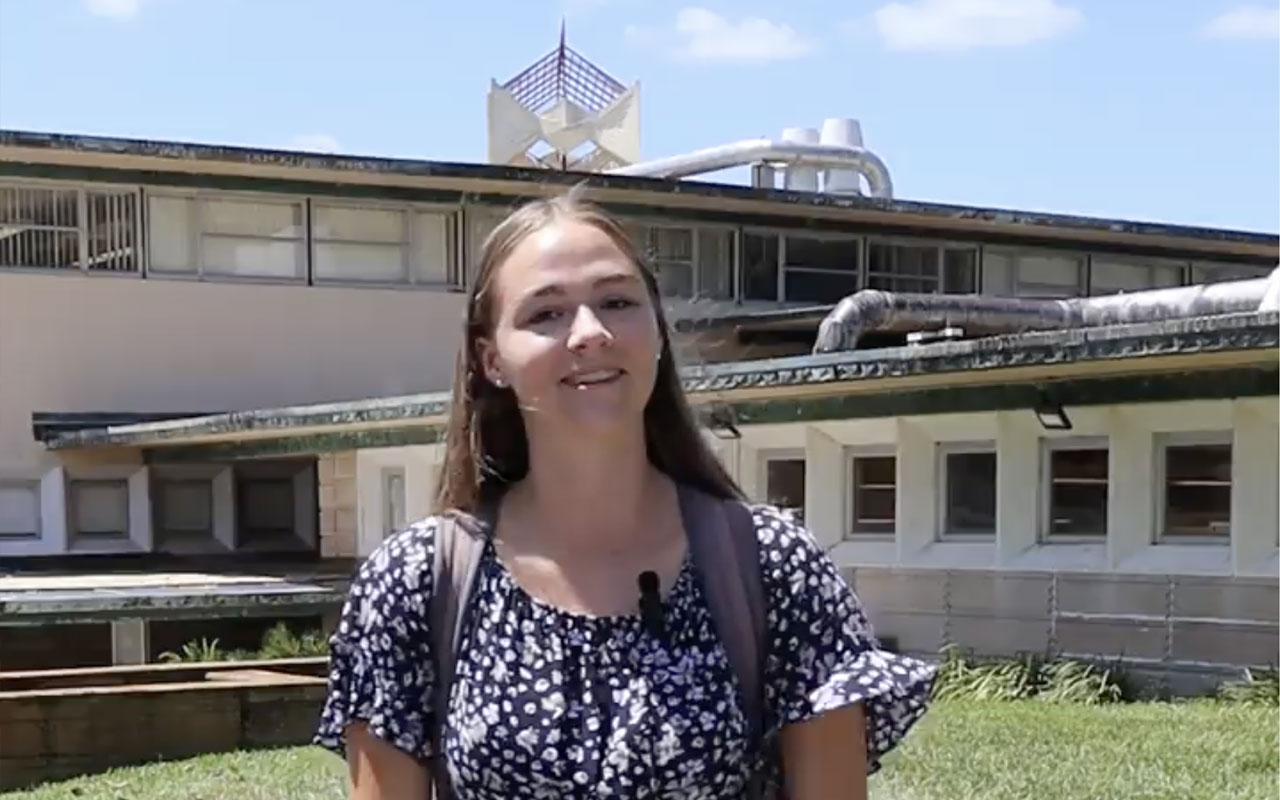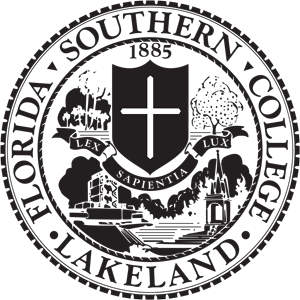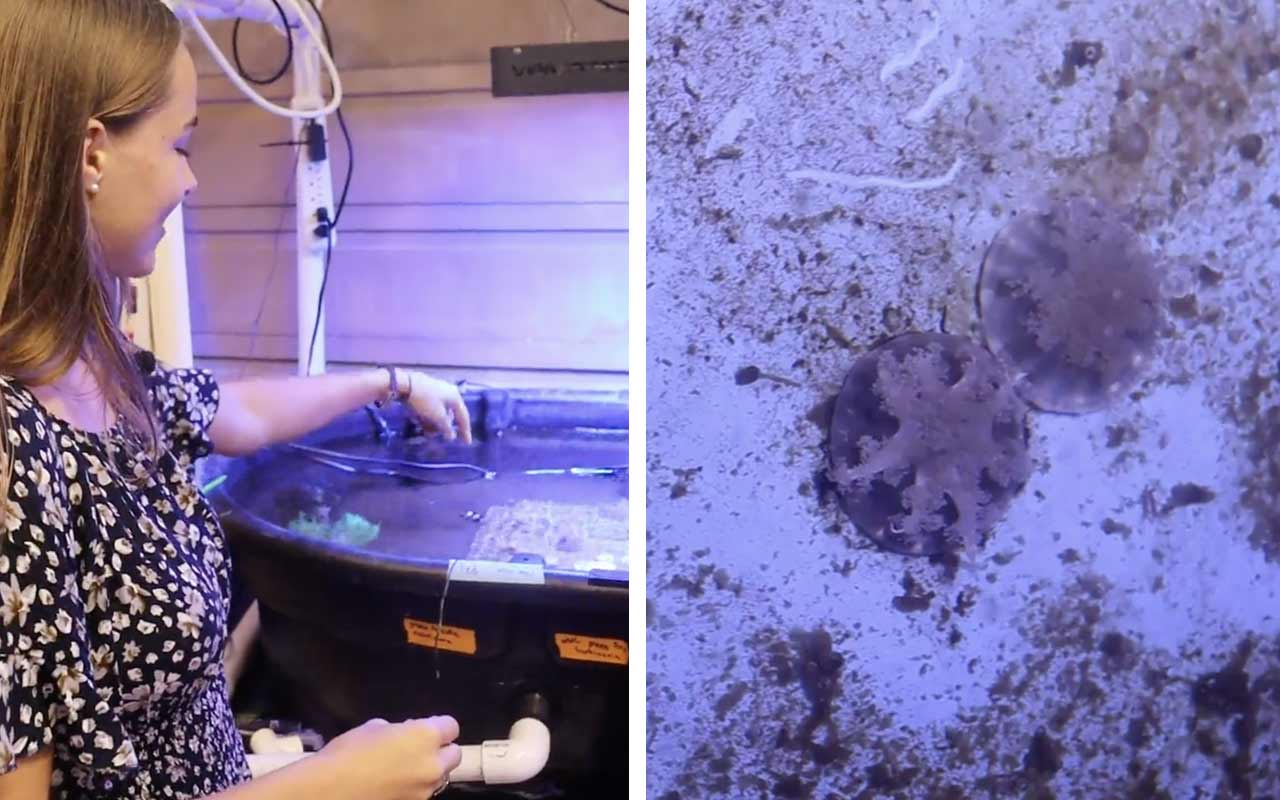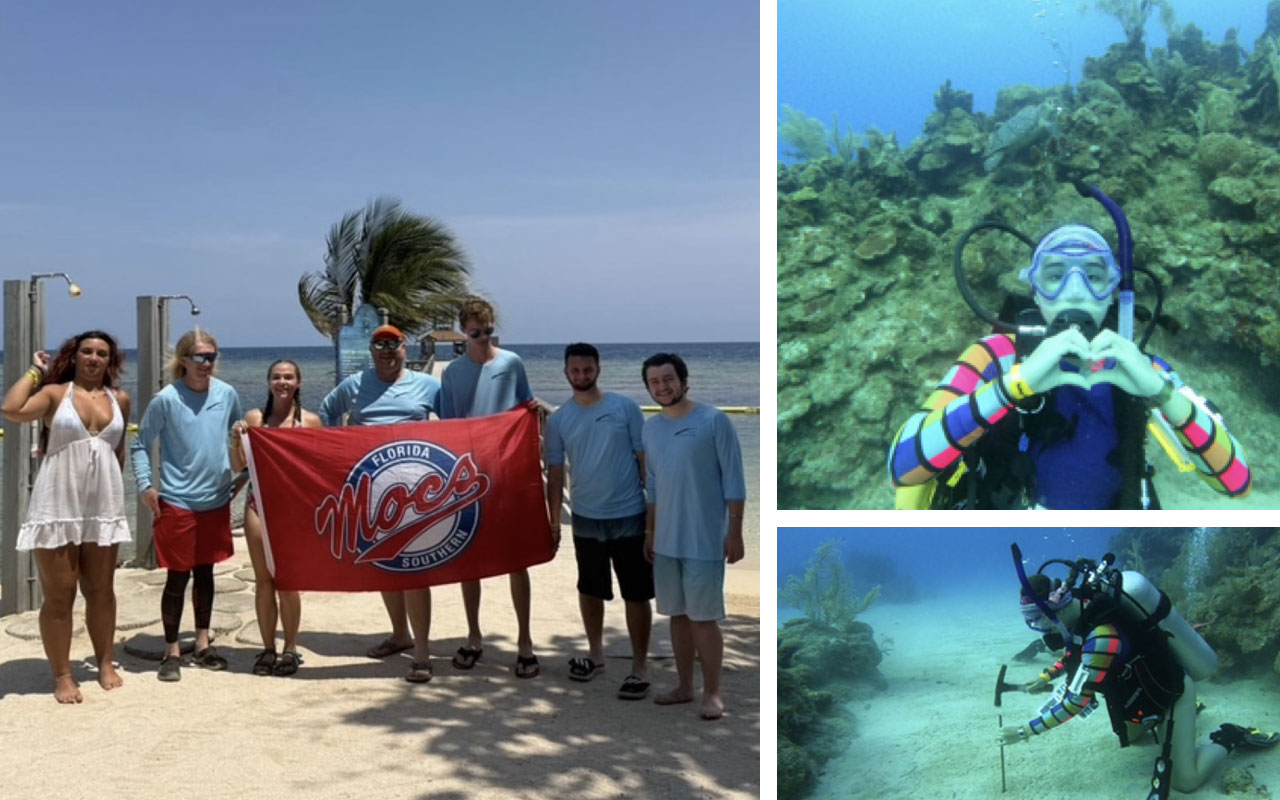
Diving Into Discovery: FSC Student Coral Tolman on Coral Reef Conservation
May 8, 2025

At Florida Southern College, students don’t just study science — they live it. For biology major Coral Tolman, what began as a passing curiosity became a deep passion for coral reef conservation. Through a self-directed research project, Coral is combining lab work, field study, and molecular biology to better understand the health of coral ecosystems. We caught up with her to learn more about her work, what inspired it, and how FSC has supported her journey.
What inspired you to focus on coral in your biology project?
When I first started looking into research topics, I avoided corals due to the irony of my name. However, it must be my destiny because I kept coming back to coral reefs and couldn’t shake my love for these organisms. Corals are some of the most amazing and important organisms on the planet. They are extremely important for coastal community economies, coastline protection, and biodiversity. Unfortunately, coral reefs worldwide are under many stressors and are in rapid decline. Many of the challenges facing these reefs don’t have solutions yet — but researchers are fervently working to help conserve and restore corals. I think corals are very interesting and beautiful, but the reason I chose to study them is because I truly think they need the most help. I plan to continue working with corals and hopefully one day will be part of the change that saves the reefs.
 Coral showcasing the coral specimens featured in her lab experiment.
Coral showcasing the coral specimens featured in her lab experiment.
What specific methods are you using to study coral health and its environment?
For my project I am using three methods: growth comparison through images, RNA extractions, and field collection. I take underwater photos of the corals at weeks 0, 5, and 10 of my experiment and then use a computer program to measure and compare their growth throughout the experiment. I also take clippings of the coral fragments and later will perform RNA extractions and sequencing to look at gene expression. I analyze the sequencing data using various computer programs including Gene Ontology and Trinity. Finally, this summer I will spend two weeks SCUBA diving in Honduras and collecting field measurements of sedimentation using sand traps.
How do you think your research can contribute to coral conservation efforts?
My specific project focuses on the impacts of SCUBA diving on reefs. It’s been found that divers can have negative impacts on coral reefs, but no one has looked at this on the molecular level. By starting small, I will be able to better explain and predict what’s happening in the big picture. Eventually, I hope to help inform management plans that aim to limit recreational diving levels to sustainable amounts.
Have you had the opportunity to conduct any fieldwork for your project?
This project is mostly a lab-based project, however I will go into the field during the Honduras Junior Journey this May. We will be SCUBA diving to collect sedimentation samples, look at coral rugosity, and observe diver behavior. Before the trip, I was able to practice these techniques in the Keys with my research advisor and other students. We practiced identifying and counting corals, using sediment traps, and conducting fish surveys.
How does Florida Southern College’s biology program provide unique opportunities for hands-on research with marine life like coral?
Florida Southern College really caters itself to bettering the real-world experience of their students. Every student gets field experience their first year whether it be a trip to the Keys Marine Lab or collecting inverts in Lake Hollingsworth. Each class has field and lab components to expose students to different skills and techniques. After that, it’s really up to the individual. If you want to work with a certain species or do a specific collection technique, you really just have to ask. Nobody was doing coral research at FSC until I asked my advisor if I could, and he said let’s make it happen. Since then I have built my own tank systems, started growing and maintaining my own corals, and completed a feeding study on them. At FSC, if you want to do something and are willing to put in the work, you will have a whole team supporting you.
What resources or support does Florida Southern College offer for students interested in pursuing marine biology or environmental conservation?
It really depends on what your goals are. They will make sure you have the experience, classes, and resume to get there. If you want to conduct your own research, they’ll help you do that too. Some of the opportunities the biology department offers are: faculty-led summer research internships, conferences, field work, and study abroad associated with marine classes. As an undergrad-serving institution, you aren’t competing with graduate or doctorate students, and the small class size means you aren’t just a number either. Each student has a team of professors, advisors, and other faculty who are all interested in their success.
Interested in hands-on science and meaningful research?
Learn more about the Biology Department at Florida Southern College and discover how you can dive into your own scientific journey.
 Coral and students from the Biology department on their study abroad trip to Honduras.
Coral and students from the Biology department on their study abroad trip to Honduras.